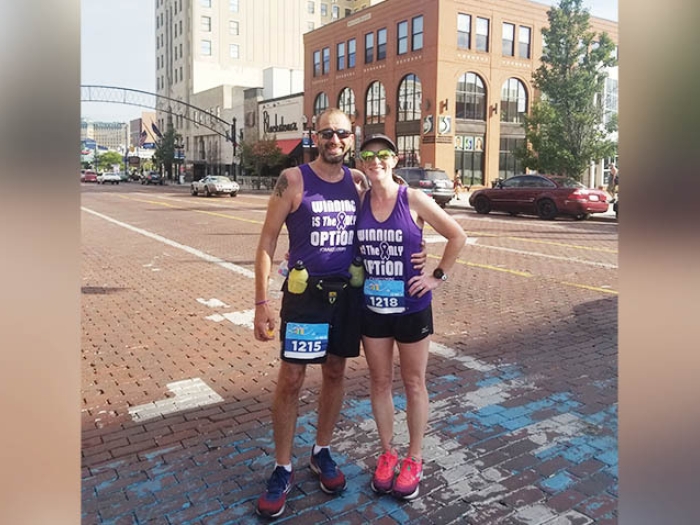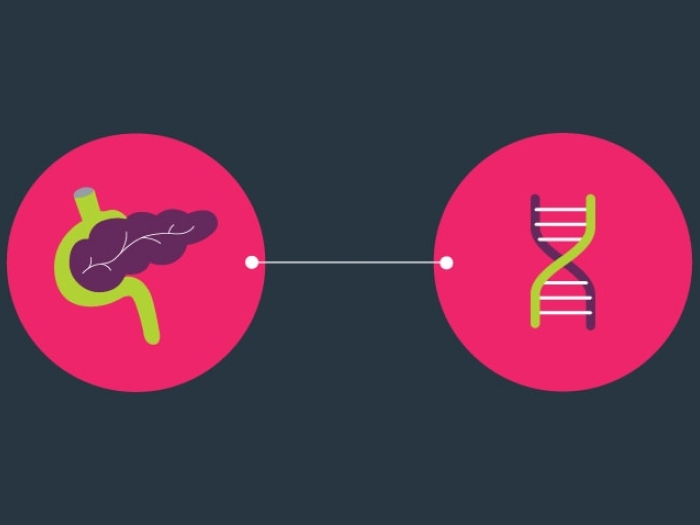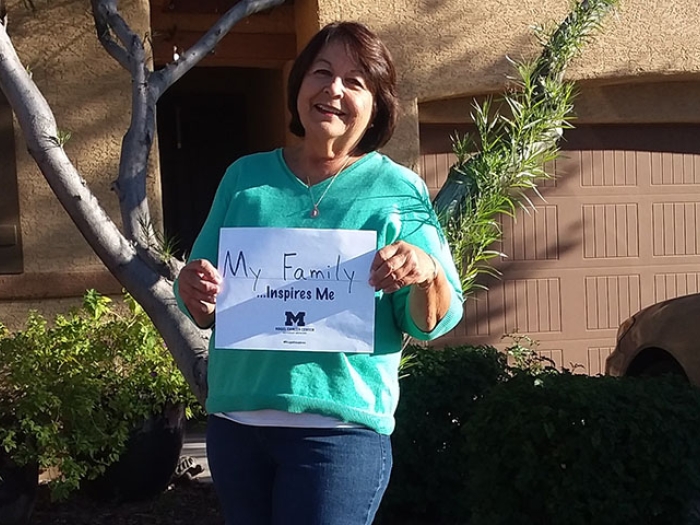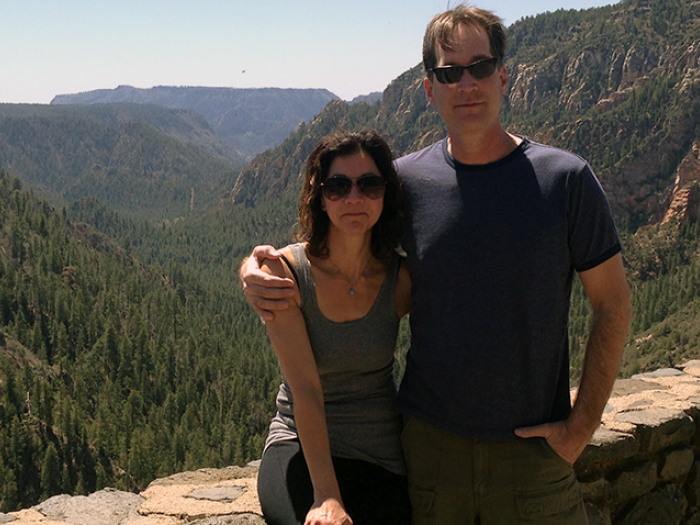Rose Mary Worthen wasn’t expected to live more than a year after her diagnosis. Four years later, she’s using her art — and her sense of humor — to spread hope.
7:00 AM
Author |

The diagnosis came out of the blue four years ago.
MORE FROM MICHIGAN: Sign up for our weekly newsletter
Rose Mary Worthen, a retired flight attendant and mother of four, was cleaning the baseboards in her kitchen when she felt a sudden, intense pain in her chest. She drove to the doctor, who, fearing a heart attack, put her in an ambulance to Michigan Medicine's University Hospital for tests.
By the end of the day, three doctors were standing at the foot of her bed delivering the sobering news. It wasn't her heart. It was stage 4 pancreatic cancer, with multiple lymph nodes involved. She likely had less than a year to live.
"About 53,000 Americans will be diagnosed with pancreatic cancer in 2017, and 50 to 60 percent of them will present with metastatic disease, as did Rose Mary," says Vaibhav Sahai, MBBS, M.S., medical oncologist at Michigan Medicine. "The median survival with this cancer, with standard cytotoxic chemotherapy, is expected to be less than 12 months."
Worthen gathered the troops. Told her children and grandchildren the news. Got her affairs in order. Joined cancer support groups at the hospital and online. Took a couple of bucket-list trips. Meanwhile, her partner, Jerry, immersed himself in pancreatic cancer data.
She started on radiation, then chemotherapy. A year passed. Then another. And another. Now, four years into her diagnosis, Worthen approaches the uncertainty of her future with a philosophical perspective and a healthy dose of humor.
"People ask me how I handled it when I got my diagnosis," says Worthen. "Well, I'll tell you. I slapped myself on the back of the head, I bought myself a pair of diamond earrings, put on my big-girl pants and said 'eff it' and kept going. And that's what I live by. That's my code of honor."

The team, the team, the team
Worthen credits her treatment team, including Sahai, Chelsey Quinlan, PA-C, and Susan Masri, R.N., with her longevity in the face of steep odds. Equally important is her partner, Jerry.
"Jerry has come with me to every infusion, every appointment and every blood draw," says Worthen. "He has been a support past none in my life. Between him and Dr. Sahai and the staff at U of M, they have kept me alive."
SEE ALSO: How Cancer Research Gave Hope to a Patient Previously Out of Options
Sahai explains that the very thing that may have contributed to the development of Worthen's pancreatic cancer — a mutation in a BRCA gene — has opened a course of treatment, personalized to her genomic profile, that has allowed her to continue to flourish.
"Only about 5 to 7 percent of patients have underlying BRCA mutations — it is quite uncommon," says Sahai. "It is also further uncommon to identify that mutation. You might not even recognize it if you don't do the analysis. And it is more uncommon to be able to procure the drug from insurance or through petitioning the pharmaceutical company. Not everybody has the same response on this therapy. In her case, she has had an excellent response."

The gift that keeps on giving
While her medical treatment has been outstanding, Worthen says, it's not just the doctors who have made a difference.
Group and individual counseling sessions help when the emotions of a terminal cancer diagnosis get overwhelming. And an encounter with an art therapist gave Worthen a gift that keeps on giving.
"I was sitting in infusion one day when Melinda, the Cancer Center's art therapist, came up to me and said, 'Would you like to do some artwork?'" says Worthen. "That's when I started making these."
"These" are Worthen's butterflies — clear, acrylic, flat-bottomed crystals to which she affixes hand-drawn butterflies and a short message. Some read "courage." Others "strength" or "hope."
She hands them out to people in infusion or waiting for appointments at the University of Michigan Comprehensive Cancer Center. She gives them to people waiting in line at the grocery store who look like they're having a difficult day. She gives them away to spread her particular brand of joy.
"I walk up to people and put them in their hands," says Worthen. "And I say: 'Here you go. Here's a butterfly. You've just been stoned. And now you can never tell people you've never been stoned.' People laugh. They think it's hysterical."
The laughter and smiles give her a lift when she's having a bad day of her own.
"When I started handing them out to people, I felt good," says Worthen. "It was more what I was feeling at that point than what they were feeling. It's part of what keeps me going. I always know that if I give one to someone, they will smile. It's like — yeah. That's what it's all about."
Worthen estimates that she has made and given away many hundreds of her butterflies over the past four years. Word of these talismans has spread in the cancer support community, and she's recently had requests to ship her butterflies across the country.
"I don't know why people love butterflies, but if you give someone a butterfly, it changes their day," says Worthen. "It isn't much, but if it's a legacy I can leave, I'll leave it."
Photos by Leisa Thompson.
Rose Mary Worthen died in 2018.

Explore a variety of healthcare news & stories by visiting the Health Lab home page for more articles.

Department of Communication at Michigan Medicine
Want top health & research news weekly? Sign up for Health Lab’s newsletters today!





